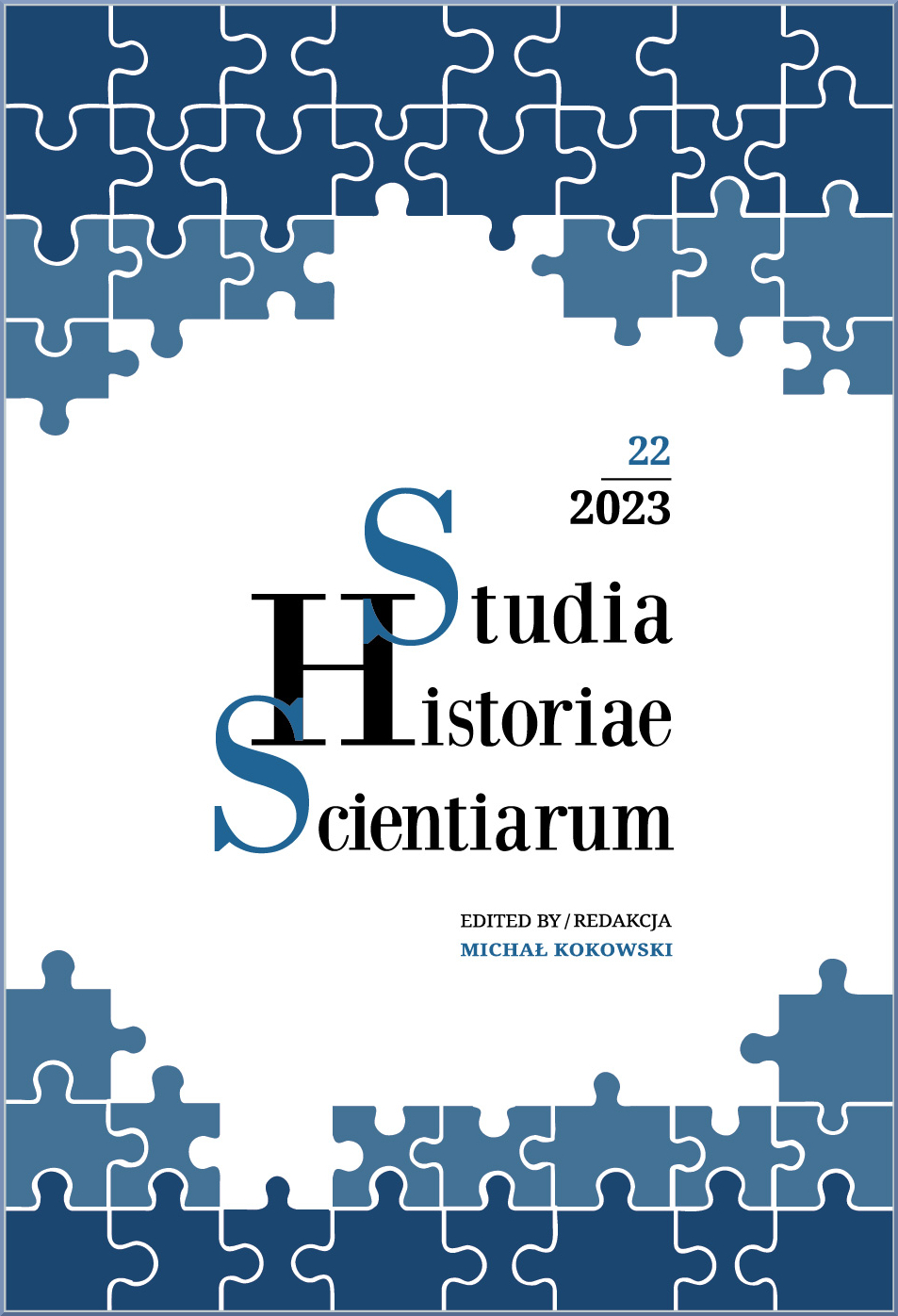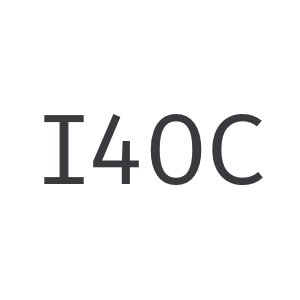Thomas Kuhn, Stefan Amsterdamski i cykle rozwoju nauki
DOI:
https://doi.org/10.4467/2543702XSHS.23.006.17697Słowa kluczowe:
rozwój nauki, rozwój poznawczy, nieciągłość, cykle rozwojowe, paradygmat, ideał nauki, krytycyzmAbstrakt
W swoim najsłynniejszym dziele, „Strukturze Rewolucji Naukowych”, Thomas S. Kuhn rozwija myśl, iż nauka jest zakorzeniona w historycznie przygodnej praktyk oraz idei. Historia jest tym samym częścią nauki. Nauka rozwija się, przekształcając to, co zastane, którą to myśl podjął również polski filozof, Stefan Amsterdamski. Kuhn dostrzegł również paralelność rozwoju nauki oraz poznania jednostkowego, co doprowadziło go do przekonania, iż istnieje różnica między tym, co naukowcy robią, a tym co „robi” sama nauka. Rozwój nauki jest nieciągły w tym sensie, iż nie może być mierzony żadną zewnętrzną wobec nauki miarą; tym samym, nauka jest sama dla siebie sędzią. W prezentowanym artykule identyfikuję podstawowe błędy w przyjętej przez Kuhna teorii rozwoju psychologicznego poznania, które najbardziej rzutują na jego wizję rozwoju nauki. Następnie rekonstruuję problem doświadczenia i rozwoju w kategoriach teorii systemów dynamicznych oraz poznania ucieleśnionego. Spostrzeżenia te organizuję za pomocą cyklicznego modelu rozwoju nauki, wyróżniając dwie podstawowe fazy: kreatywną i generatywną. Podejście cykliczne pozwala na przekroczenie dualizmów obecnych w koncepcji Kuhna (zaangażowanie versus krytycyzm, kreatywność versus przestrzeganie reguł.) a także na dalsze rozwinięcie spostrzeżenia Amsterdamskiego, iż krytycyzm jest możliwy mimo niedostępności uniwersalnych standardów oceny.
Bibliografia
Amsterdamski, Stefan 1992: Between History and Method. Disputes about the Rationality of Science. Transl. by O. Amsterdamska, and G. Moore “Boston Studies in Philosophy of Science”, vol. 145. Boston: Springer-Science + Business Media.
Arnheim, Rudolf 1988: The Power of the Center: A Study of Composition in the Visual Arts. Berkeley, Los Angeles: University of California Press.
Barker, Paul, Chen, X., Andersen, H. 2006: The Cognitive Structure of Scientific Revolutions. New York: Cambridge University Press.
Churchland, P. M. 1989: The Neurocomputational Perspective: The Nature of Mind and the Structure of Science. Cambridge, MA: the MIT Press.
Csikszentmihalyi, Mihaly 1990: Flow: The Psychology of Optimal Experience. Journal of Leisure Research 24(1), pp. 93–94.
Collingwood, Robin G. 1994: The Idea of History (with Lectures 1926–1928). Edited by Jan van der Dussen. Oxford: Oxford University Press.
Craig, A.D. (Bud) 2009: How Do You Feel – Now? The Anterior Insula and Human Awareness. Nature Neuroscience 10(1), pp. 59–70. DOI: 10.1038/nrn2555.
Damasio, Antonio 1999: The Feeling of What Happens: Body and Emotion in the Making of Consciousness. New York: Hartcourt Inc.
Damasio, Antonio 2010: Self Comes to Mind: Constructing of the Conscious Brain. New York: Vintage Books.
Dreyfus, Hubert L., Dreyfus, Stuart E. 1986: Mind Over Machine. The Power of Human Intuition and Expertise in the Age of the Computer. Oxford: Basil Blackwell.
Gallese, Vittorio 2003: The Roots of Empathy: The Shared Manifold Hypothesis and the Neural Basis of Intersubjectivity. Psychopathology 36(4), pp. 171–80. DOI: 10.1159/000072786.
Garderförs, Peter, 2004. Conceptual Spaces: The Geometry of Thought. Cambridge, MA: The MIT Press / Bradford Books.
Gärdenfors, P., Zenker, F. 2013: Theory Change as Dimensional Change: Conceptual Changes Applied to the Dynamics of Empirical Theories. Synthese 190 (6), pp. 1039–1058.
Giere, Ronald N. 1992: Cognitive Models of Science. Minneapolis, MN: University of Minnesota Press.
Gould, James A. 1962: The Existence of Absolute Space. The Ohio Journal of Science 62(2), pp. 101–104.
Hermans, Hubert J.M. 2016: The Dialogical Self in Psychotherapy. [In:] H.J.M. Hermans, G. DiMaggio (eds.), The Dialogical Self: Between Exchange and Power. New York: Routledge.
Hoyningen-Huene, Paul 1993: Reconstructing Scientific Revolutions: Thomas S. Kuhn’s Philosophy of Science. Transl. by A.T. Levine, Chicago: University of Chicago Press.
Johnson, Mark, 2007: The Meaning of the Body: Aesthetics of Human Understanding. Chicago: Chicago University Press.
Kitcher, Philip 1993: The Advancement of Science. Science without Legend, Objectivity without Illusions. New York-Oxford: Oxford University Press.
Koyré Alexandre, 1957: From the Closed World to the Infinite Universe. Baltimore, London: The John Hopkins University Press.
Köhler, Wolfgang 1947: Gestalt Psychology: An Introduction to the New Concepts in Modern Psychology. New York: Liveright
Kuhn, Thomas S. 1957: The Copernican Revolution. Planetary Astronomy in the Development of Western Thought. Cambridge, MA: Harvard University Press.
Kuhn, Thomas S. 1977: Second Thoughts on Paradigms, The Essential Tension Selected Studies in Scientific Tradition and Change. Chicago: Chicago University Press.
Kuhn, Thomas S. 1978: The Black-Body Theory and the Quantum Discontinuity 1894–1912. Chicago: University of Chicago Press.
Kuhn, Thomas S. 1990. The Road since Structure. PSA: Proceedings of the Biennial Meeting of the Philosophy of Science Association, pp. 3–13. Stable URL: https://www.jstor.org/stable/193054.
Kuhn, Thomas S. 1996: The Structure of Scientific Revolutions. 3rd ed. Chicago: The University of Chicago Press.
Laird, James D. 2007: Feelings: The Perception of Self. Oxford: Oxford University Press.
Lakoff, George; Johnson, Mark 1999: Philosophy in the Flesh: The Embodied Mind and Its Challenge to the Western Thought. New York: Basic Books.
Landesmann, Charles 1965: The New Dualism in the Philosophy of Mind. Review of Metaphysics 19(2), pp. 329–345. Stable URL: https://www.jstor.org/stable/20124113.
Laudan, L. 1984: Science and Values. The Aims of Science and Their role in Scientific Debates. Berkeley: University of California Press.
McGilchrist, Iain, 2019: The Master and His Emissary: The Divided Brain and the Making of the Western World. New Haven: Yale University Press.
Merleau-Ponty, Maurice 1973: The Prose of the World. Trans. John O’Neill. Evanston: Northwestern University Pres.
Musgrave, Alan 1977: Musgrave Alan, Method or Madness? [In:] P.K. Feyerabend, M. Wartofsky (eds.), Essays in Memory of Imre Lakatos. Dordrecht: Reidel.
Nersessian, Nancy J. 1992: How Do Scientists Think? Capturing the Dynamics of Conceptual Change in Science. [In:] R.N. Giere (ed.), Cognitive Models of Science. Minneapolis, MN, USA: University of Minnesota Press. pp. 3–45.
Nickles, Thomas (ed.) 1980: Scientific Discovery: Case Studies. Dordrecht: Reidel.
Panksepp, Jaak 1998: Affective Neuroscience: The Foundations of Human and Animal Emotions. New York, Oxford: Oxford University Press.
Piaget, Jean 1985: The Equilibration of Cognitive Structures: The Central Problem of Intellectual Development. Chicago: University of Chicago Press.
Polanyi, Michael 1962: Personal Knowledge: Towards Post-Critical Philosophy. London: Routledge.
Popper, Karl R. 1963: Conjectures and Refutations: The Growth of Scientific Knowledge. London: Routledge.
Popper, Karl R. 1992: The Myth of the Framework: In defense of science and Rationality. Edited by M.A. Notturno. London: Routledge.
Popper, Karl R. 2002: The Logic of Scientific Discovery. Trans. Karl R. Popper. London, New York: Routledge Classics.
Rouse, Joseph 1996: Engaging Science: How to Understand Its Practices Philosophically. Ithaca, London: Cornell University Press.
Allan N. Schore 2015: Affect Regulation and the Origin of the Self: The Neurobiology of Emotional Development. New York, London: Routledge Taylor & Francis Group (EPUB).
Varela, Francisco J.; Rosch, Eleonor; Thompson, Evan 1991: The Embodied Mind: Cognitive Science and Human Experience. The MIT Press.
Vygotsky, Leo S. 1986: Thought and Language. Edited by Alex Kozulin. Cambridge, MA: The MIT Press.
Winch, Peter 2003: The Idea of a Social Science and Its Relation to Philosophy. London: Routledge, Kegan Paul.





























